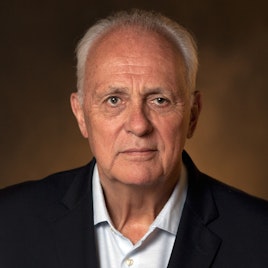The Future of the Open Society Foundations
By Mark Malloch-Brown

Freedom is in trouble. The reasons are well rehearsed. Growing inequality and marginalization of different groups has fueled an embrace of the authoritarian right, and sometimes left, in many countries. As the world grapples with a period of rapid technological change and economic restructuring, it is by no means clear in the eyes of many citizens that democracies have the edge in terms of adaptation and smart forward-thinking policy making.
So how should we at the Open Society Foundations respond?
Since our beginnings in the 1980s Open Society has operated on the assumption that a growing number of governments across the world were embracing freedom and its rules. That allowed us in partnership with local activists to use a mixture of shaming and encouragement to persuade governments to adopt and respect human rights laws and democratic rights.
Now those gains have been thrown into sharp reverse—not because our work is any less intense or engaged, but because world politics has changed. As a foundation chaired to this day by its founder, George Soros, we are certainly not going to take an easy way out, or to move on perhaps to easier issues. That’s not our way. A survivor of Nazism and a refugee from Communism in his native Hungary, George Soros started the foundation when the times looked as difficult for human rights as they do today.
So we are going to double down but we need to think again and devise a theory of change not altogether unlike that which informed Soros’s first work: we must ask who are the enemies of an open society and what will bring them to respect rights. And what can we do to make ourselves better able to fight for freedom and rights.
So the Open Society Foundations is now engaged in a fundamental transformation of the way we work to meet the challenges of the moment. To augment our impact, we need to bring more focus, integration, and scale to our work. We are shifting to a more integrated approach, envisioning six regional strategies and a single global strategy to ensure more coordinated and collaborative interventions, through grant making, advocacy, strategic litigation, investment, and other tools.
Our global priorities will fall under three enduring commitments that have underpinned George Soros’s vision since the creation of the Open Society Foundations as a force to promote human rights and democratic practice—Justice, Equity, and Expression.
- Justice means that we want to see societies characterized by the rule of law and fairness, where governments are held accountable by robust civil society.
- Equity means protecting universal basic rights and freedoms, including equal access to resources, services, and opportunities.
- Expression means broadening public access to information and ideas, defending freedom of thought and artistic expression, and cultivating and encouraging heterodox viewpoints, particularly in closed societies.
We will also take up the pressing work of addressing the unequal burdens of the climate crisis. We will also take an intersectional justice approach—in an unrelenting effort to dismantle the layered and structural inequalities around race, gender, class, and sexual orientation.
We believe these changes will enable us to make bigger commitments that can shift the scale on global issues, while at the same time continuing our longstanding commitment to community groups that have built and sustained the development of coalitions that together can make so much difference from the neighborhood level to the corridors of global power.
At the same time, we are overhauling the way we do our global advocacy, with a new focus on time-bound targeted campaigns, with specific targets, that will allow us to bring our myriad strengths to bear in a coordinated and effective way.
These changes are ambitious; and they will have an impact on our partners, and on our staff. We will stop working globally on some important areas of work, in order to focus on effective change in others. We ask for forbearance and patience as we go through this process, and we are doing our utmost to be respectful and responsible in the ways we go about implementing these changes.
But we are confident that we will emerge stronger and more effective for these changes, despite the inevitable challenges along the way.
When so much of what we care about is under attack, my hope is that we will become as fully focused as we can be on pushing back against the enemies of open society—and that we will restore the risk-taking, high-impact approach that was the hallmark of the foundations that George Soros launched in the 1990s.
That bold spirit—George’s bold spirit—is more important than ever today. We will keep our eyes firmly on that prize. And we will emerge a stronger champion of human rights, and human dignity.

Mark Malloch-Brown is president of the Open Society Foundations.